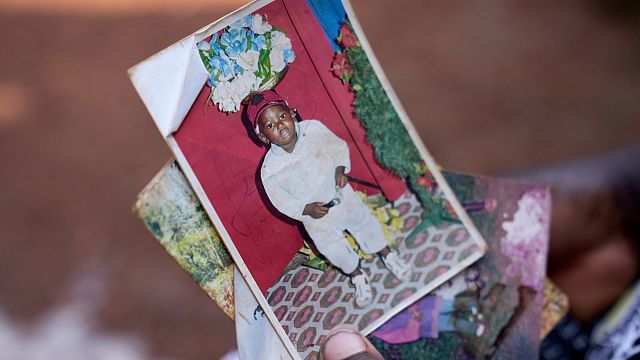Stripe’s former growth lead helps African diaspora invest in startups, real estate


When Joe Kinvi joined Touchtech Payments in 2017 as head of finance, the Irish startup couldn’t afford his full salary. So he negotiated for stock to make up the difference. Eighteen months later, Stripe acquired the company, and that equity converted into Stripe shares, enough to let Kinvi leave his job, bootstrap a side project, and eventually found a startup.
That startup, Borderless, is now helping Africans in the diaspora collectively invest in startups and real estate back home. Since launching in beta last year, the U.K.-based platform has processed over $500,000 in transactions.
“The diaspora sends billions of dollars in remittances, but very little of it goes into productive assets,” Kinvi said. “We think that there is a world where, if we can bring the right collective to the right type of investment opportunities, it’ll make it a lot easier for them.”
Kinvi’s journey to Borderless began in 2020, just as the pandemic hit. He and a group of friends formed Hoaq, an investment club that pooled small checks from local and diasporan angels into African startups.
Their first challenge was simply opening a bank account. Financial institutions flagged their activity, and their account with Wise was repeatedly frozen. Other hurdles soon followed: currency mismatches, regulatory requirements, and accreditation rules that made collective investing a legal and logistical headache.
To manage the complexity, the group used membership dues to hire a lawyer to handle the paperwork manually. Eventually, Hoaq built light automation into its workflow, an experience that laid the foundation for Borderless. Hoaq has invested in companies such as LemFi, Bamboo and Chowdeck.
By 2022, Kinvi had left Stripe, where he had transitioned into a product and growth role and later spent a year at Paystack, another Stripe subsidiary, helping scale financial partnerships across Africa.
When he returned to the problem that had formed Hoaq, he built a tool that digitized everything from onboarding to disbursement. What began as an internal solution soon gained outside interest. Other collectives wanted access, not just for startup deals but for real estate and other assets.
Today, Borderless provides the backend infrastructure for diaspora collectives, allowing them to onboard members, accept cross-border payments, and deploy capital securely.
There are over 100 communities on its waitlist, according to the startup. However, over the past couple of months, the collectives currently live on the platform have backed more than 10 startups and two real estate projects in Kenya, with minimum investments of $1,000 for startups and $5,000 for property.
Borderless operates under U.K. regulatory cover, permitting it to market investment opportunities to diaspora members without violating securities laws.
For now, it focuses on two asset classes, startups and real estate, but Kinvi sees room to expand into others, including film and diaspora bonds.
In establishing that the most important part of the Borderless model is trust, Kinvi is blunt about why many diaspora investors hesitate to deploy capital: too many have lost money trying to invest informally through family or friends.
“Someone I know sent €200,000 home to build a house,” he said. “The house was never built.”
To address this, Borderless routes investor funds directly to verified sellers, escrow accounts, or lawyers. No money flows through the hands of collective managers. Legal and compliance checks are embedded into the process, and all opportunities require approval under the platform’s regulatory umbrella.
Borderless earns revenue through transaction fees as well as a cut of membership dues and FX spreads. Over time, it may layer on remittance products, payout fees, and asset management tools.
The bigger opportunity, Kinvi argues, lies in unlocking the $30 billion in migrant savings that sit idle every year. While remittance platforms like Zepz, Taptap Send, LemFi and NALA dominate the space of taking some of that money back home, few have built for long-term investing (that might change in the coming years with recent moves from some players).
That message has resonated with local investors. Borderless’s backers include DFS Lab, Ezra Olubi (Paystack CTO), Olumide Soyombo, and executives from Stripe, Google, among others. Many are not just investors, but also users of the platform.
For Kinvi, the mission for Borderless, which raised $500,000 in seed from these investors, is as much about identity as returns. “Most Africans in the diaspora want to go back home someday,” he said. “To do that, they need a way to invest securely and confidently at scale. That’s what we’re building.”
Still, scaling won’t be easy. Borderless’ current vetting model relies heavily on pre-existing relationships and known collective heads. As it grows, it will need robust identity verification, fraud detection, and legal tooling to avoid becoming a target for bad actors.
What's Your Reaction?
 Like
0
Like
0
 Dislike
0
Dislike
0
 Love
0
Love
0
 Funny
0
Funny
0
 Angry
0
Angry
0
 Sad
0
Sad
0
 Wow
0
Wow
0









































